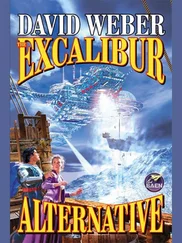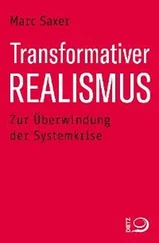Mark Fisher - Capitalist Realism - Is There No Alternative?
Здесь есть возможность читать онлайн «Mark Fisher - Capitalist Realism - Is There No Alternative?» весь текст электронной книги совершенно бесплатно (целиком полную версию без сокращений). В некоторых случаях можно слушать аудио, скачать через торрент в формате fb2 и присутствует краткое содержание. Жанр: Старинная литература, на английском языке. Описание произведения, (предисловие) а так же отзывы посетителей доступны на портале библиотеки ЛибКат.
- Название:Capitalist Realism: Is There No Alternative?
- Автор:
- Жанр:
- Год:неизвестен
- ISBN:нет данных
- Рейтинг книги:4 / 5. Голосов: 1
-
Избранное:Добавить в избранное
- Отзывы:
-
Ваша оценка:
- 80
- 1
- 2
- 3
- 4
- 5
Capitalist Realism: Is There No Alternative?: краткое содержание, описание и аннотация
Предлагаем к чтению аннотацию, описание, краткое содержание или предисловие (зависит от того, что написал сам автор книги «Capitalist Realism: Is There No Alternative?»). Если вы не нашли необходимую информацию о книге — напишите в комментариях, мы постараемся отыскать её.
Capitalist Realism: Is There No Alternative? — читать онлайн бесплатно полную книгу (весь текст) целиком
Ниже представлен текст книги, разбитый по страницам. Система сохранения места последней прочитанной страницы, позволяет с удобством читать онлайн бесплатно книгу «Capitalist Realism: Is There No Alternative?», без необходимости каждый раз заново искать на чём Вы остановились. Поставьте закладку, и сможете в любой момент перейти на страницу, на которой закончили чтение.
Интервал:
Закладка:
We do not need to wait for Children of Men's near-future to arrive to see this transformation of culture into museum pieces. The power of capitalist realism derives in part from the way that capitalism subsumes and consumes all of previous history: one effect of its 'system of equivalence' which can assign all cultural objects, whether they are religious iconography, pornography, or Das Kapital, a monetary value. Walk around the British Museum, where you see objects torn from their Iifeworlds and assembled as if on the deck of some Predator spacecraft, and you have a powerful image of this process at work. In the conversion of practices and rituals into merely aesthetic objects, the beliefs of previous cultures are objectively ironized, transformed into artifacts. Capitalist realism is therefore not a particular type of realism; it is more like realism in itself. As Marx and Engels themselves observed in The Communist Manifesto,
[Capital] has drowned the most heavenly ecstasies of religious fervor, of chivalrous enthusiasm, of philistine sentimentalism, in the icy water of egotistical calculation. It has resolved personal worth into exchange value, and in place of the numberless indefeasible chartered freedoms, has set up that single, unconscionable freedom -Free Trade. In one word, for exploitation, veiled by religious and political illusions, it has substituted naked, shameless, direct, brutal exploitation.
Capitalism is what is left when beliefs have collapsed at the level of ritual or symbolic elaboration, and all that is left is the consumer-spectator, trudging through the ruins and the relics.
Yet this turn from belief to aesthetics, from engagement to spectatorship, is held to be one of the virtues of capitalist realism. In claiming, as Badiou puts it, to have'delivered us from the "fatal abstractions" inspired by the "ideologies of the past"', capitalist realism presents itself as a shield protecting us from the perils posed by belief itself. The attitude of ironic distance proper to postmodern capitalism is supposed to immunize us against the seductions of fanaticism. Lowering our expectations, we are told, is a small price to pay for being protected from terror and totalitarianism. 'We live in a contradiction,' Badiou has observed:
a brutal state of affairs, profoundly inegalitarian -where all existence is evaluated in terms of money alone -is presented to us as ideal. To justify their conservatism, the partisans of the established order cannot really call it ideal or wonderful. So instead, they have decided to say that all the rest is horrible. Sure, they say, we may not live in a condition of perfect Goodness. But we're lucky that we don't live in a condition of Evil. Our democracy is not perfect. But it's better than the bloody dictatorships. Capitalism is unjust. But it's not criminal like Stalinism. We let millions of Africans die of AIDS, but we don't make racist nationalist declarations like Milosevic. We kill Iraqis with our airplanes, but we don't cut their throats with machetes like they do in Rwanda, etc.
The 'realism' here is analogous to the deflationary perspective of a depreSSive who believes that any positive state, any hope, is a dangerous illusion.
In their account of capitalism, surely the most impressive since Marx's, Deleuze and Guattari describe capitalism as a kind of dark potentiality which haunted all previous social systems. Capital, they argue, is the 'unnamable Thing', the abomination, which primitive and feudal societies 'warded off in advance'. When it actually arrives, capitalism brings with it a massive desacralization of culture. It is a system which is no longer governed by any transcendent Law; on the contrary, it dismantles all such codes, only to re-install them on an ad hoc basis. The limits of capitalism are not fixed by fiat, but defined (and redefined) pragmatically and improvisationally. This makes capitalism very much like the Thing in John Carpenter's film of the same name: a monstrous, infinitely plastic entity, capable of metabolizing and absorbing anything with which it comes into contact. Capital, Deleuze and Guattari says, is a 'motley painting of everything that ever was'; a strange hybrid of the ultra-modern and the archaic. In the years since Deleuze and Guattari wrote the two volumes of their Capitalism And Schizophrenia, it has seemed as if the deterritorializing impulses of capitalism have been confined to finance, leaving culture presided over by the forces of reterritorialization.
This malaise, the feeling that there is nothing new, is itself nothing new of course. We find ourselves at the notorious 'end of history' trumpeted by Francis Fukuyama after the fall of the Berlin Wall. Fukuyama's thesis that history has climaxed with liberal capitalism may have been widely derided, but it is accepted, even assumed, at the level of the cultural unconscious. It should be remembered, though, that even when Fukuyama advanced it, the idea that history had reached a 'terminal beach' was not merely triumphalist. Fukuyama warned that his radiant city would be haunted, but he thought its specters would be Nietzschean rather than Marxian. Some of Nietzsche's most prescient pages are those in which he describes the 'oversaturation of an age with history'. 'It leads an age into a dangerous mood of irony in regard to itself', he wrote in Untimely Meditations, I and subsequently into the even more dangerous mood of cynicism', in which 'cosmopolitan fingering', a detached spectatorialism, replaces engagement and involvement. This is the condition of Nietzsche's Last Man, who has seen everything, but is decadently enfeebled precisely by this excess of (self) awareness.
Fukuyama's position is in some ways a mirror image of Fredric Jameson's. Jameson famously claimed that postmodemism is the'cultural logic of late capitalism'. He argued that the failure of the future was constitutive of a postmodern culrural scene which, as he correctly prophesied, would become dominated by pastiche and revivalism. Given that Jameson has made a convincing case for the relationship between postmodern culrure and certain tendencies in consumer (or post-Fordist) capitalism, it could appear that there is no need for the concept of capitalist realism at all. In some ways, this is true. What I'm calling capitalist realism can be subsumed under the rubric of postmodernism as theorized by Jameson. Yet, despite Jameson's heroic work of clarification, postmodernism remains a hugely contested term, its meanings, appropriately but unhelpfully, unsettled and multiple. More importantly, I would want to argue that some of the processes which Jameson described and analyzed have now become so aggravated and chronic that they have gone through a change in kind.
Ultimately, there are three reasons that I prefer the term capitalist realism to postmodernism. In the 1980s, when Jameson first advanced his thesis about postmodernism, there were still, in name at least, political alternatives to capitalism. What we are dealing with now, however, is a deeper, far more pervasive, sense of exhaustion, of cultural and political sterility. In the 80s, 'Really Existing Socialism' still persisted, albeit in its final phase of collapse. In Britain, the fault lines of class antagonism were fully exposed in an event like the Miners' Strike of 1984-1985, and the defeat of the miners was an important moment in the development of capitalist realism, at least as significant in its symbolic dimension as in its practical effects. The closure of pits Was defended precisely on the grounds that keeping them open
7
was not 'economically realistic', and the miners were cast in the role of the last actors in a doomed proletarian romance. The 80s were the period when capitalist realism was fought for and established, when Margaret Thatcher's doctrine that 'there is no alternative' -as succinct a slogan of capitalist realism as you could hope for -became a brutally self-fulfilling prophecy.
Читать дальшеИнтервал:
Закладка:
Похожие книги на «Capitalist Realism: Is There No Alternative?»
Представляем Вашему вниманию похожие книги на «Capitalist Realism: Is There No Alternative?» списком для выбора. Мы отобрали схожую по названию и смыслу литературу в надежде предоставить читателям больше вариантов отыскать новые, интересные, ещё непрочитанные произведения.
Обсуждение, отзывы о книге «Capitalist Realism: Is There No Alternative?» и просто собственные мнения читателей. Оставьте ваши комментарии, напишите, что Вы думаете о произведении, его смысле или главных героях. Укажите что конкретно понравилось, а что нет, и почему Вы так считаете.












